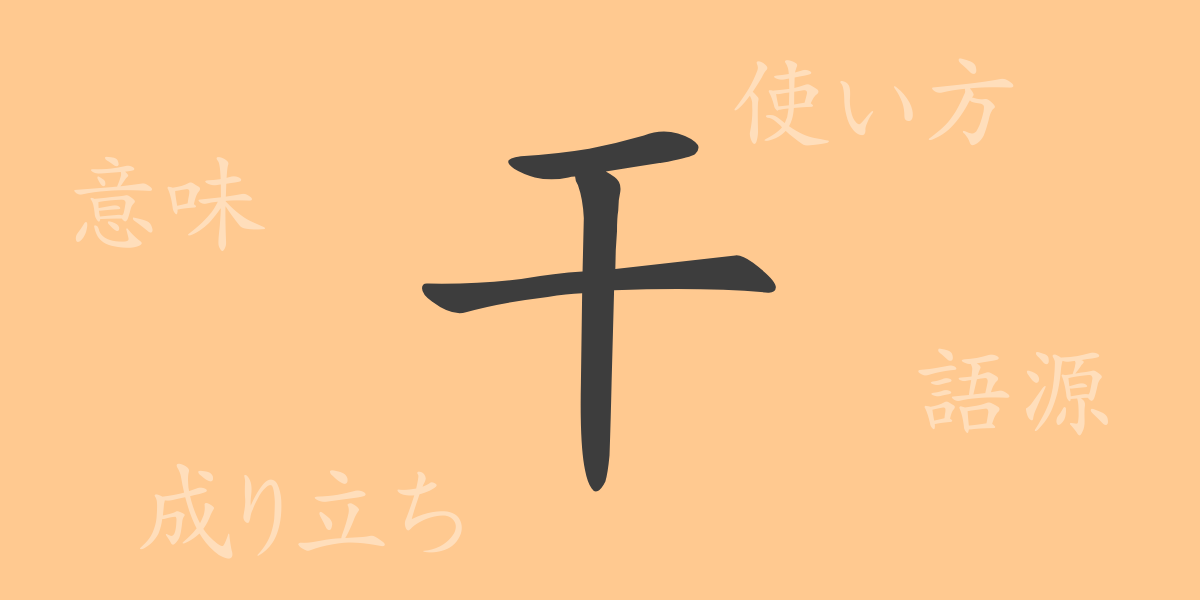Kanji are not just characters; they are a spiritual heritage of Japan, embodying history, culture, and profound meanings. In this article, we spotlight the common Japanese kanji “干(Kan)” (Kan), exploring its allure and diversity. While 干(Kan) is frequently used in everyday life, many might not be aware of its origins or the depth of its meanings. We will delve into the world of 干(Kan), from its etymology to its use in idioms, phrases, and proverbs.
The Origin (Etymology) of 干(Kan)
The origin of the kanji 干(Kan) dates back to ancient China’s oracle bone script, where its earliest form can be seen. Originally, this character meant “to split wood,” symbolically representing the state of wood cracking as it dries. Over time, 干(Kan) has come to be used with various meanings, but its fundamental concepts are related to actions such as “to divide” and “to dry.”
Meanings and Uses of 干(Kan)
干(Kan) has a wide range of meanings, including “to dry,” “to interfere,” and “the celestial stem.” A common phrase we hear in daily life is “洗濯物を干(Kan)す” (sentakumono- wo -ho-su), which stems from the basic meaning of 干(Kan) to dry something. In the context of “干(Kan)渉する” (kanshou- suru), it means to intervene in someone’s affairs. Furthermore, the 干(Kan) in “干(Kan)支” (えと/eto), which refers to the Chinese zodiac, represents an important concept of dividing time.
Readings, Stroke Count, and Radical of 干(Kan)
Despite its simple shape, the kanji “干(Kan)” carries a wealth of information.
- Readings: The on’yomi (Sino-Japanese reading) is “カン” (kan), while the kun’yomi (native Japanese readings) include “ほす” (ho-su) and “ひる” (hi-ru).
- Stroke Count: 3 strokes
- Radical: 干(Kan) (かんにょう/kannyou)
Idioms, Phrases, and Proverbs Using 干(Kan) and Their Meanings
There is an abundance of idioms, phrases, and proverbs that include the kanji 干(Kan) in the Japanese language. For example, “干(Kan)天の慈雨” (kanten- no- jiu) depicts the situation where long-awaited rain falls as a blessing, signifying unexpected help in times of hardship. “干(Kan)場のない” (hiba- no nai) is an expression of lamentation for not having a position or place. Through these words, we can appreciate the depth of meaning that 干(Kan) holds.
Conclusion on 干(Kan)
Through our exploration, we have seen how the kanji “干(Kan)” lives not just as a character but within culture and language. From its etymology to its use in idioms and phrases, 干(Kan) proves to be an indispensable element in the Japanese language. Understanding the history and meanings embedded in this kanji, which we might see every day, can offer us a new perspective on language.

























